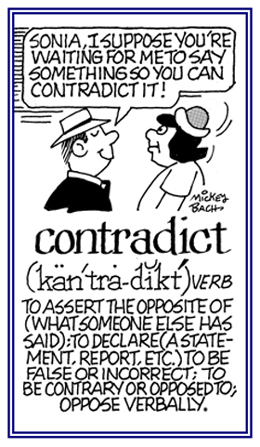dic-, dict-
(Latin: talk, speak, say, tell, declare; to proclaim)
The principal of the school used several beneficences in his speech at the farewell dinner for the retiring teachers.
As the guests were leaving the hotel Mr. Young, the manager, expressed benedicites to each one as an expression of his gratitude for their patronage.
2. A blessing and an expression of thanks: When all of Godfrey's family got together for the Thanksgiving meal, he said a benedicite which presented his appreciation to the Lord for their health and well being.The local newspaper carried a surprising announcement that the mayor was now a benedict in that he was married for the first time while away on his holidays.
2. Etymology: from Latin benedictus, "blessed", past participle of benedicere, "to bless"; literally, "to speak well of, to praise".When Ms. Smith checked the list of students in her class at the beginning of the new semester, she noticed that both a boy named Benedict and a girl called Benedicta were enrolled.
3. Etymology: both names come from Latin; literally, "to speak well of, to praise", from bene, "well" + dicere, "to say, to tell".Jim's parents gave their benediction to him by wishing him, from their hearts, that all would go well on his trip as a professional photographer in the center of a war zone.
2. Blessing carried into practical effect; kindly favor, grace: The local spiritual leader gave a benediction for the farmers in praise of their good crops.The pastor, Mr. Anderson, gave his benediction to the couple at the end of the wedding ceremony, wishing them contentment and prosperity in their future life together.
3. A prayer of sacred blessing, normally just before a church service ends: The minister, Mr. Drexler, concluded the church meeting with a prayer of benediction.4. An expression of good things desired, something that assures well-being and goodness: At the conclusion of the meeting of the committee members, the chairperson spoke a brief benediction, wishing everyone a safe summer holiday.
2. Referring to, or in the form of, a blessing: The benedictory remarks at the funeral seemed to please those who were attending, including the family members.
3. Etymology: from Latin benedictio; from benedicere, "to bless".
Motto of Bradfield College, U.K.
2. Etymology: from Middle English, which came from Old French beneison; from Latin benedictio, "praising".
Some people may be accused of being computer addicts because they are engrossed in achieving more objectives via the internet and their computers than is possible with any other tool or device.
2. Etymology: from Latin com-, "with" and putare, "to reckon" or "to think" + ad-, "to" + dicere, "to say, to declare".2. The way in which something exists or the physical status of something: Elana's car is still in very good condition so she doesn't plan to buy another one; at least, not at this time.
3. The physical and mental status of a person or an animal: Despite his age, David is still in good condition.
If a person is in no condition to do something, then he or she is not physically or mentally able to do it.
4. Etymology: from Modern French condition, "stipulation, state, behavior, social status" which came from Latin condicionem, condicio, "agreement, situation"; from condicere, "to speak with, to talk together", from com-, "together" + dicere, "to speak".The group's scheduled walk tomorrow is conditional on whether it rains or not.
2. To be directly opposed to a statement or an action; to go against: Jim's mother was contradicting herself because; first she said that he could go to the movies with his friends, then she said he could not go!
3. Etymology: from Latin contradicere, "to speak against"; from contra-, "against, opposite" + dicere, "to speak, to say".



